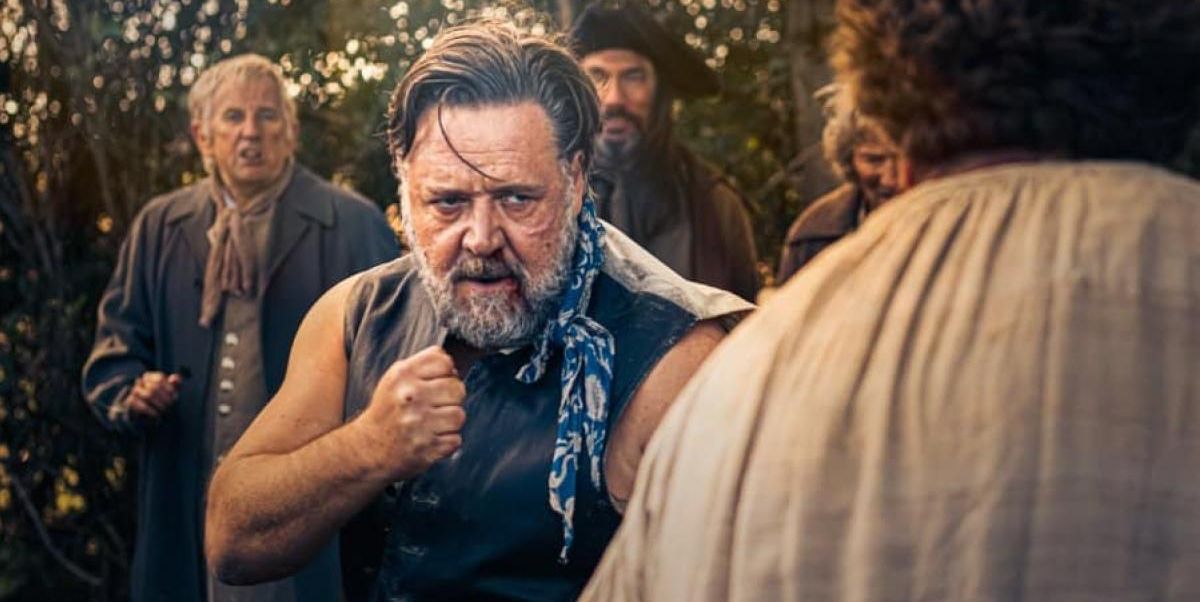Daniel Graham directs Russell Crowe and Ray Winstone in “The Making of a Champion,” the story of the birth of boxing with Jem Belcher and his grandfather, Jack.
“If you can’t make gentlemen out of boxers, make boxers out of gentlemen.” This phrase, premonitory regarding the drift of boxing from the end of the 19th century and very appropriate to the subtext that threatens ‘The forge of a champion’ (which was born as an angry class struggle and ended as a business of the elites exploiting those who fought in a ring and those who paid to see it), is pronounced in one of the best movies about boxing: ‘Gentleman Jim’ (or ‘Knight Jim’), a masterpiece (one of dozens) by Raoul Walsk shot in 1942 and with an incredible Errol Flynn playing Jim Corbett, the sportsman who most popularized modern boxing (gloves and a show for gentlemen) at the end of the 19th century after the assumption of the Marquis of Queensberry’s rules. Corbett coincided with the British Jem Melcher, the middleweight champion protagonist of ‘The forging of a champion’, when he traveled (as he did for years) to the United States for 65 years! continue fighting professionally in a ring. It was a time when men were men, boxers were boxers, and in the case of ‘Gentleman Jim’, cinema was cinema.
‘The forging of a champion’ is not ‘Gentleman Jim’, not only because the nationality of their biographed boxers separates them, but because Raoul Walsh’s electrifying film was very present despite its air of light comedy (not light weights ) the overwhelming conversion of an American immigrant lower-middle class into a flourishing bourgeoisie that was crowned precisely by defeating the stylist John L. Sullivan. The film dedicated to Belcher, a personal endeavor (script and performance) by Matt Hookigs, in an exercise reminiscent of Sylvester Stallone from ‘Rocky’, does not hide that classism (If you look at it, it’s still a typically British story of social careerism a la ‘Barry Lyndon’, whose exquisite and assentimental film adaptation by Stanley Kubrick takes the visual look) nor his personal and class climax settled in a final combat (the best of the film), but everything ends up being as light as with little punch.
It follows the classic scheme of boxing cinema (vocation, preparation, success, temptation, failure, redemption, resurrection and triumph) although only in its first half, where Russell Crowe shines briefly as that kind of Jedi Master with a dark side who was the grandfather of Jem Melcher, and in the aforementioned conclusion. In between there is a placid, pleasant but uninteresting, period chronicle that is recreated in costumes, production design and a love story seen a thousand times in any BBC product. What yes, what It serves to contrast the origins of Belcher, a naive savage to be tamed by five o’clock tea, a Samson about to run into a puritanical Delilah, and to narrate what boxing would later become.and yet very far from the direct uppercut of other titles in the genre and that of Raoul Walsh with Errol Flynn in particular.
For historians of boxing and boxing cinema
DATA SHEET
Address: Daniel Graham Distribution: Russell Crowe, Ray Winstone, Matt Hookings, Marton Csokas Country: United Kingdom Year: 2022 Release date: 04–11-2022 Gender: Drama Script: matt hookings Duration: 111 minutes
Synopsis: In the early 19th century, when boxing was the sport of kings, Jem Belcher, a talented young boxer, following in the footsteps of his grandfather Jack, fought to become the youngest champion in English history. This is the true story, never told until now, of the birth of boxing.
Source: Fotogramas
Camila Luna is a writer at Gossipify, where she covers the latest movies and television series. With a passion for all things entertainment, Camila brings her unique perspective to her writing and offers readers an inside look at the industry. Camila is a graduate from the University of California, Los Angeles (UCLA) with a degree in English and is also a avid movie watcher.

